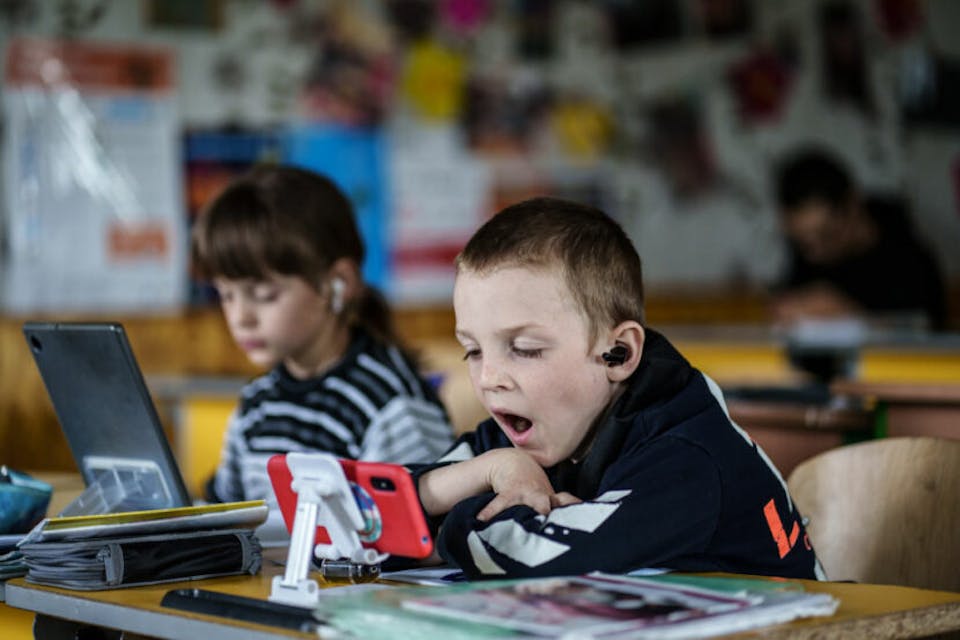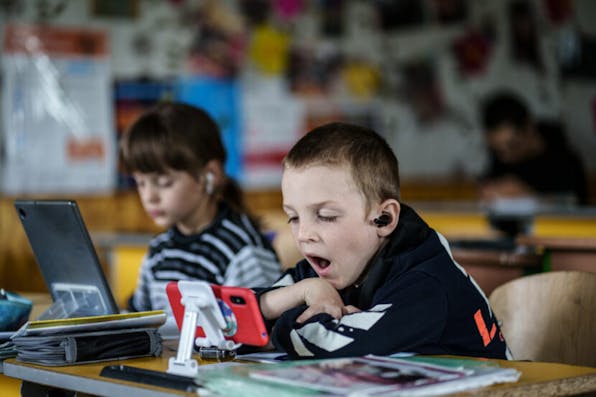
March 31, 2025
The Ed-Tech Revolution: A View from the Frontlines
Teenagers may love their smartphones, but they know intuitively that real learning doesn’t happen on screens.
I want to thank Mathis Bitton and Jack Sadler for their well-researched and thought-provoking investigation into the effects of the proliferation of educational technology over the last few decades. I was especially fascinated by the public-school system’s relationship with ed tech, the history of the complex (and apparently political) explosion of ed-tech companies, and the data surrounding educational outcomes, specifically regarding middle-school classrooms.
As a teacher at a private Jewish high school in New York City with a low student-to-teacher ratio and a far healthier approach to technology than what Bitton and Sadler describe, much—but far from all—of what they say resonated with me. But perhaps of more interest than my own experience are the reactions of the fifteen high-school students with whom I shared the article. I was surprised, in discussing it with them, to find how many points of agreement there were among us regarding some of the authors’ arguments. When it comes to screen usage and recreational social media, I’ve found that teenagers tend to take very different positions from the adults they know, often in ways that go against the data. Regarding ed tech, however, they felt much more like me—and like the authors of the article.
While both I and my students thought the authors somewhat overstated the challenge with their dystopian portrait of depersonalizing high-tech education, we also realized that our own experiences might be exceptional. Our school banned laptops from the classroom years ago. And none of us felt that we had experienced the “downright destruction of teaching as a vocation,” that “technology has fundamentally warped the role of the teacher, and the quality and purpose of education,” that the digital classroom has created an “entire generation incapable of writing without a keyboard, adding without a calculator,” and so forth, or that “teachers have been ‘re-classed as consultants.’” (In my opinion, other factors besides technology are at play in diminishing the supply of capable teachers.)


